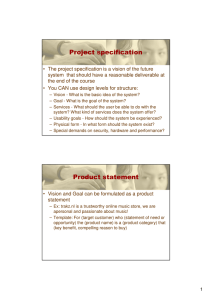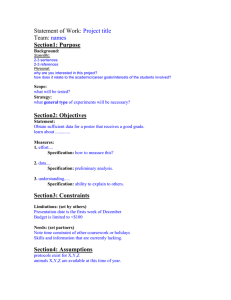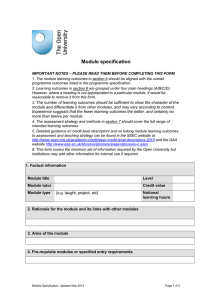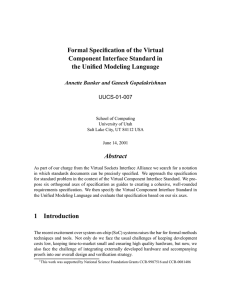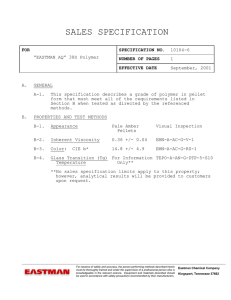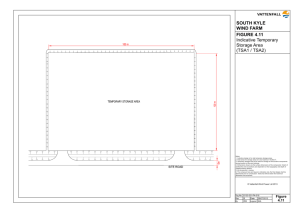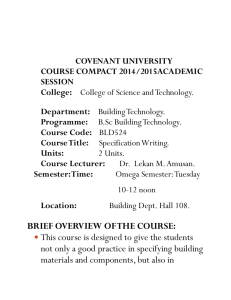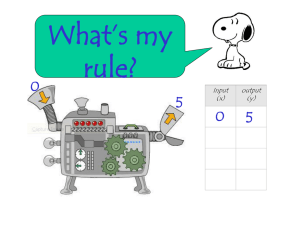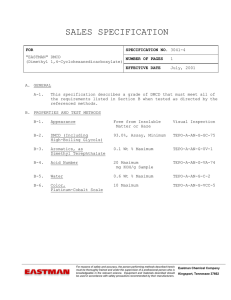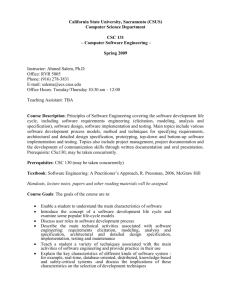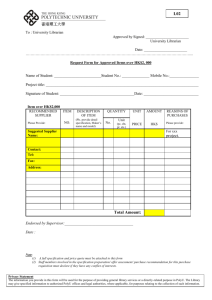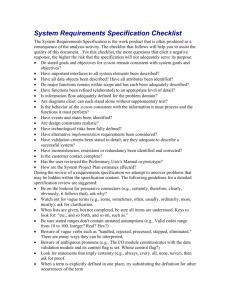MCN 8109 Formal Methods in Software Engineering
advertisement
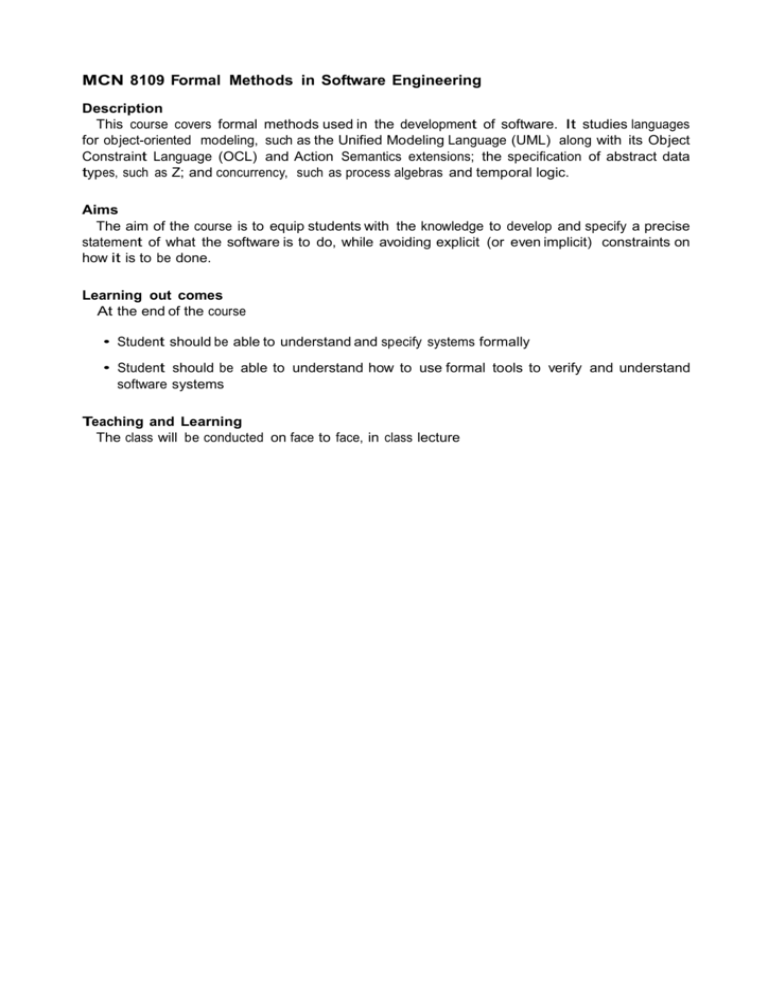
MCN 8109 Formal Methods in Software Engineering Description This course covers formal methods used in the development of software. It studies languages for object-oriented modeling, such as the Unified Modeling Language (UML) along with its Object Constraint Language (OCL) and Action Semantics extensions; the specification of abstract data types, such as Z; and concurrency, such as process algebras and temporal logic. Aims The aim of the course is to equip students with the knowledge to develop and specify a precise statement of what the software is to do, while avoiding explicit (or even implicit) constraints on how it is to be done. Learning out comes At the end of the course • Student should be able to understand and specify systems formally • Student should be able to understand how to use formal tools to verify and understand software systems Teaching and Learning The class will be conducted on face to face, in class lecture Indicative Content • Predicate Logic Specification: foundations, basic concepts, verification. The Z notation and language. • Algebraic Specification: Foundations, Basic concepts, Verification: Program derivation, • Automatic program synthesis The use tools such as such as , Z animation, The OBJ family of languages and LARCH .Statecharts shall also be covered Reading sources Material/Indicative • Diller, Z An Introduction to Formal Methods (2nd ed.), Wiley, 1994. • I. Van Horebeek & J. Lewi, Algebraic Specifications in Software Engineering • J. V. Guttag, E. Horowitz & D. R. Musser, ”The Design of Data Type Specifications”, Current Trends in Programming Methodology (R. T. Yeh, ed.). Assessme nt • Seminar series presentation, Research coursework, Project • Final examinition Prerequisit es Basic understanding of logic and discrete structures
